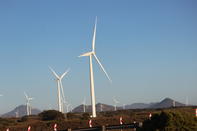The Individual's Role

As for the individual, what can you do to lessen global warming? Scientists have murmured that it is pointless to go out of your way to switch off unnecessary lights at home and do similar energy-saving exercises. It sounds a bit defeatist, but they are probably right.
The tiny bit of electricity wasted by a single light bulb is meaningless compared with the massive emissions that come from industry, mines and transport every day. Nevertheless, we can do our bit: shower quickly instead of bath, set the geyser to 55°C, install energy-efficient appliances in our homes, and try moving to solar panels where possible. The government could consider tax subsidies for energy-saving initiatives in the home.
You can make wise decisions about the vehicles we use - buy smaller, fuel-efficient cars, start lift clubs and walk to the local shop instead of drive. You can pressure our municipalities and local government to act decisively to provide public transport. You can demand that national government and industry be kept accountable to the public for their policies, activities and emissions.
There are doubts about how much of a difference any of these actions will make. The United States and China seem set to carry on business as usual. While the US continues to secure its oil resources, it is tapping fossil fuels stored in the sediments beneath the seabed in the Gulf of Mexico.
Deposits of methane hydrate crystals, formed by combinations of water and gases under high tectonic pressure, are being harvested as a fuel and the methane burned. The by-product is CO. The Guardian reported that 'scientists reckon there could be more valuable carbon fuel stored in the vast methane hydrate deposits scattered under the world's seabed and Arctic permafrost than in all of the known reserves of coal, oil and gas put together.’
So, while most of the scientific community and many politicians believe people are already committed to dangerous levels of climate change, the US continues to have this potent source of greenhouse gas commercially available as a fuel.
Reinvention

Given that humans are a species of such remarkable ingenuity and aptitude, how bad does the situation have to become before people apply themselves to finding solutions to the problem of global warming rather than continuing business as usual? And, when they get to that point, will it be too late? If it is not already too late.
At some point, the industrialised world will have to rein itself in. If everyone on the planet lived to the excesses enjoyed by the people of the United States with current technology, people would need four more Earths to provide the resources. In the past, pollution has always been fairly localised. But globalisation has finally been embraced in the pollution market. By virtue of the mobility of the air around us, spewing filth into the atmosphere becomes the first truly global form of pollution. The pollution may go up into the sky over Gauteng, London or New York but it rains down its consequences in many places that are utterly non-complicit.
The UN's Millennium Ecosystem Assessment points out that the: Negative impacts of climate change will fall disproportionately on the poorest parts of the world - for instance by exacerbating drought and reducing food production in the drier regions - but the build up of greenhouse gases has come overwhelmingly from richer populations as they consume more energy to fuel their higher living standards.
The Intergovernmental Panel on Climate Change (IPCC) first put the highest likely temperature increase within the next century at 6°C - the same temperature increase that wiped out almost all of life 250 million years ago. It may even get hotter. Not much is separating humans from the great hereafter. The planet's sixth great mass extinction is upon the world with the current rate of species loss. The question is not whether it will worsen, but by how much. Earth's biodiversity took about 80 to 100 million years to return to its former level after the Permian disaster.
If life in its current form were to die out, the planet would again recover - but people will probably have written themselves out of the script.